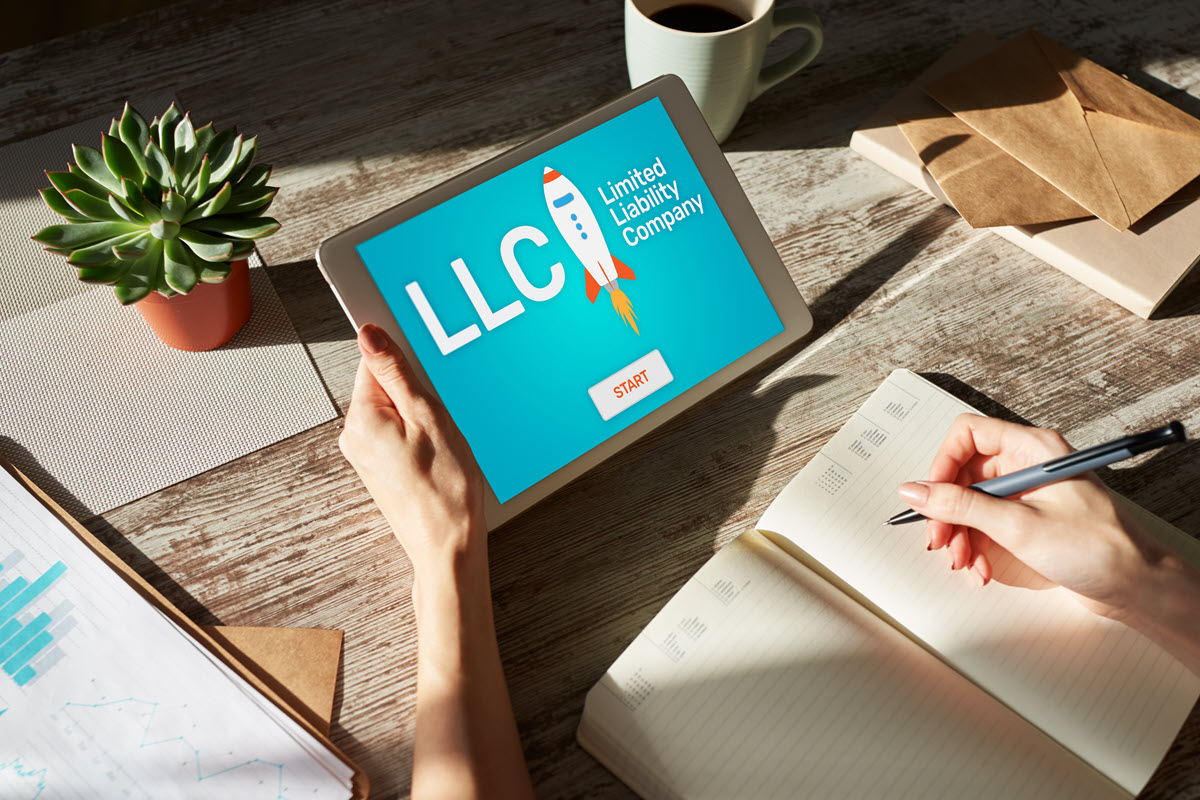Should you own real estate in an LLC? What about other personal assets?
As you accumulate wealth in different forms, the question about owning real estate and other personal assets in an LLC is a common one. You may be looking for tax benefits, protection from the risk of liability, or both. So how can you tell if an LLC is right for you? We collaborated with business attorney Brett Harris at Virgo Law to help guide you through this important decision.
What is an LLC?
A Limited Liability Company, or “LLC”, is one the best business entity options for small businesses. LLCs standout because they are relatively easy to manage compared to other business entities like corporations that have strict legal compliance requirements. More importantly, LLCs provide two key benefits for their owners: liability protection and flexible tax options.
LLCs are regulated at the state level, so the process of forming and managing an LLC is different in each state. Be sure to consult a local business attorney when deciding whether forming an LLC is right for you.
What are an LLC’s benefits?
1. LLCs limit your personal liability.
If you personally own a rental property, for example, and a renter secures a judgement against you in a lawsuit, your other personal assets like bank and investment accounts can be seized to pay the debt. However, if an LLC owns the rental property, then only that LLC’s assets can be seized to pay the judgement in most cases.
2. LLCs offer tax flexibility.
LLCs have the option of being taxed as sole proprietorship or as an S-Corporation, so you can choose the option that best fits you. By default, LLCs are taxed as sole proprietorships, so the profits and losses pass through to your personal tax return and are taxed at your personal income tax rate. This is frequently called “pass-through taxation.”
If you prefer to be taxed as an S-Corporation, you’ll need to file this election with the IRS. With an “S-Corp” tax status, your LLC is taxed as a separate entity. You’ll receive a salary as an employee of the LLC, with remaining profits passing through to you as owner. Both tax statuses have pros and cons, so consult with your accountant and financial advisor to decide what tax status is best for your LLC.
3. LLCs are easy to manage.
Compared to other business entities, like corporations, LLCs are very easy to manage. Corporations must meet legal compliance requirements, like having governing bylaws and holding annual meetings. By contrast, LLCs are only required to file annually with their state to maintain their business entity status. However, though it’s not a legal requirement, you should work with your business attorney to write an operating agreement for your LLC, which functions like corporate bylaws, if your company has two or more owners.
4. LLCs are cost-effective.
The cost to form and maintain an LLC is different in each state. In Washington, you’ll pay approximately $400 to form an LLC and approximately $150 annually to maintain your LLC. Your business attorney can help you with this process for a reasonable fee. As a cost-effective first step, consider using Virgo Law’s LLC Formation Guide.
Should I own my Real Estate in an LLC? What about other personal assets?
It depends – do you plan on generating income with this property or asset? If not, you should not own your personal assets in an LLC for two reasons. First, you will not realize the benefits of an LLC’s tax flexibility if your LLC is not generating any income. Second, if you only hold your personal assets in an LLC to shield yourself from personal liability and not for any business purpose, a court will likely find that your LLC is merely a shell entity and does not limit your personal liability.
If you own properties exclusively used as rentals, you should strongly consider owning them in an LLC and possibly multiple LLCs. However, even a vacation home that you plan to rent out part-time can be a good fit to own in an LLC. You might also use an LLC if you’re using other personal property to start generating income. For example, we recently had a client start renting out spare trailers. An LLC provided him liability protection and tax options. It is important to note here that you’ll need to legally transfer ownership of the property or asset to your LLC to be protected.
NOTE: If the LLC isn’t registered in the same state as the property, be careful—it could accidentally trigger state income or estate taxes that you might have been able to avoid. As with any tax and legal decision, review this carefully with your CPA and attorney.
So, is an LLC right for you? If you plan to generate income with your property or other asset, you may want to consider an LLC to shield you from liability which can put your other assets at risk and jeopardize your financial security. The right asset protection plan can help protect you and your finances.
Alterra Advisors and LSF/LSA do not provide tax or legal advice.
Zach Hamilton
CFP®
Partner, Financial Advisor
About the Author
Zach graduated from Gonzaga University with degrees in Marketing and Finance. While growing up, Zach heard stories from his grandfather about his work as an insurance agent, and other stories from his dad who was an investment manager. They both spoke financial “languages” but had completely different dialects. Recognizing the breadth of the financial vocabulary ultimately led to Zach’s passion for financial planning. He credits his family for this enthusiasm. Zach sees his time with clients as an opportunity to translate all of the different – and often confusing – information they’ve heard and provide clear guidance for each unique situation.
Zach enjoys working with people – his clients – who also appreciate that their financial decisions have an impact not just on themselves, but also on their families, charities and their own life legacy. Many of Zach’s clients have a strong desire to “make a difference”, and they rely on his financial expertise to magnify their philanthropic goals.
The “Alterra” name was coined by joining the Latin roots “alter”, the origin of the word “altruism” with “terra” meaning earth or land. This name reflects the company philosophy of “clients before profits” and providing firmly grounded advice.


